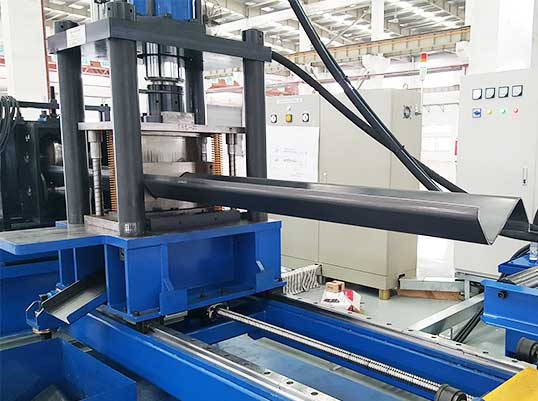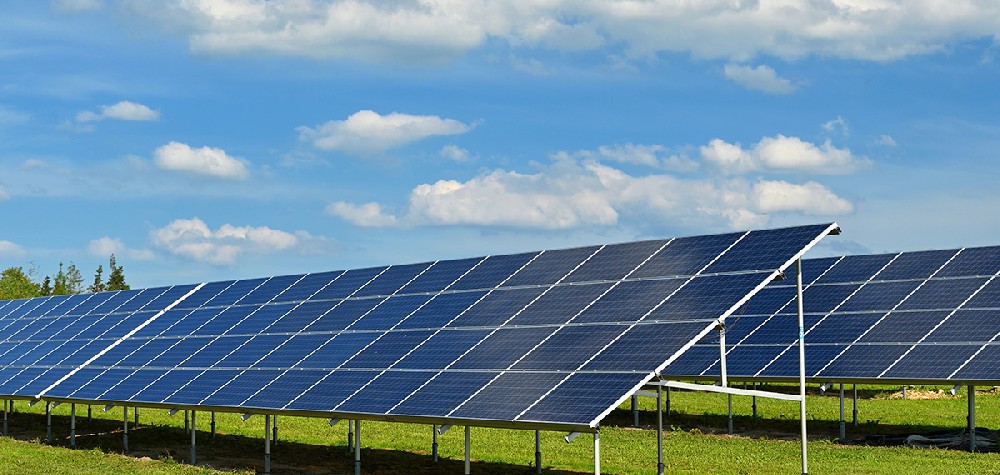Navigation Menu
Contact Us
- Email:
- info@wxavatar.com
- Address:
- Yurong Village, Yuqi Street, Huishan District, Wuxi, China.
Release Date:Jul 29, 2025 Visit:81 Source:Roll Forming Machine Factory
Solar stand roll forming machines are essential for producing the metal components used in solar mounting systems. The performance of these machines depends on various factors, with material specifications playing a crucial role. The type, thickness, and quality of the metal being processed directly affect forming precision, machine durability, and production efficiency. This article examines how material specifications influence the performance of solar stand roll forming machines.

1. Impact of Material Type on Machine Performance
Different metals exhibit varying levels of formability, strength, and resistance to wear. Common materials used in solar stand production include:
Galvanized Steel – Offers corrosion resistance and good formability, reducing wear on machine components.
Aluminum – Lightweight and easy to form but may require adjustments in roll pressure to prevent deformation.
Stainless Steel – Durable but harder to form, increasing strain on the machine and requiring stronger roll tools.
The choice of material affects tooling wear, energy consumption, and production speed. Machines processing harder metals may experience faster wear on rollers and require more frequent maintenance.
2. Influence of Material Thickness
The thickness of the metal being processed determines the required roll forming machine capacity:
Thinner Materials (0.5mm – 1.5mm) – Easier to form but may require precise control to prevent wrinkling or misalignment.
Thicker Materials (2mm – 4mm) – Require higher forming pressure, increasing motor load and tooling stress.
Machines must be calibrated to handle specific thickness ranges. Incorrect settings can lead to poor forming quality or excessive machine wear.
3. Material Coating and Surface Treatment Effects
Some metals feature coatings or treatments that impact roll forming:
Pre-painted or Powder-Coated Metals – May require softer rollers to avoid surface damage.
Hot-Dip Galvanized Steel – The zinc layer can affect friction levels, requiring adjustments in roll pressure.
Abrasive coatings can accelerate roller wear, while lubricated surfaces may improve forming efficiency.
4. Material Tolerances and Consistency
Variations in material hardness or thickness can lead to inconsistent forming results. High-quality, uniform materials ensure smoother operation, while low-grade metals may cause:
Increased scrap rates
Frequent machine adjustments
Higher maintenance costs
Consistent material specifications help maintain stable production efficiency.
5. Machine Design Adaptations for Different Materials
Manufacturers design roll forming machines with specific material specifications in mind. Key adaptations include:
Adjustable Roller Gaps – To accommodate varying thicknesses.
Reinforced Tooling – For processing high-strength metals.
Precision Guides – To ensure accurate forming of thinner or coated materials.
Selecting a machine optimized for the intended material improves performance and longevity.

Conclusion
Material specifications significantly influence the efficiency, durability, and output quality of solar stand roll forming machines. Factors such as metal type, thickness, coatings, and consistency must be carefully considered to optimize machine performance. By matching material properties with the appropriate machine settings and tooling, manufacturers can enhance production reliability and reduce operational costs. Understanding these relationships ensures better decision-making in both machine selection and material procurement.